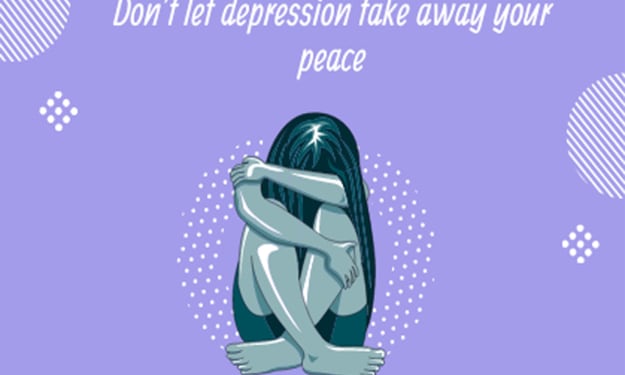
Emotional exhaustion is a state of feeling drained and overwhelmed by the demands of everyday life, particularly those that are emotionally taxing. It is often described as feeling like there is no energy or motivation left to face the day ahead. Emotional exhaustion can arise from a variety of factors, such as stress, work overload, relationship issues, and caregiving responsibilities. In this article, we will discuss the causes, symptoms, and coping strategies for emotional exhaustion.
Causes of Emotional Exhaustion
Emotional exhaustion can be caused by a range of factors, including work-related stress, relationship difficulties, and caregiving responsibilities. Here are some common causes of emotional exhaustion:
1. Work-Related Stress
Work-related stress can be a major cause of emotional exhaustion, particularly for people who have high-pressure jobs that require long hours, tight deadlines, and constant multitasking. This can lead to burnout, which is a state of physical, emotional, and mental exhaustion caused by prolonged exposure to stress.
2. Relationship Issues
Relationship problems, such as conflicts with partners, family members, or friends, can also contribute to emotional exhaustion. Constant arguing, unresolved conflicts, and lack of communication can all take a toll on mental and emotional well-being.
3. Caregiving Responsibilities
Caregiving responsibilities, whether for children or elderly family members, can be overwhelming and lead to emotional exhaustion. The constant demands of caregiving, such as managing medications, appointments, and daily needs, can cause feelings of stress and exhaustion.
Symptoms of Emotional Exhaustion
The symptoms of emotional exhaustion can vary from person to person, but some common signs to look out for include:
1. Chronic Fatigue
Emotional exhaustion can cause chronic fatigue, which is a feeling of tiredness that is not relieved by rest or sleep. This can make it difficult to perform daily activities and lead to a decreased quality of life.
2. Lack of Motivation
People experiencing emotional exhaustion may feel like they lack motivation to do even simple tasks, such as getting out of bed or doing household chores.
3. Emotional Instability
Emotional exhaustion can cause people to feel emotionally unstable, leading to mood swings, irritability, and difficulty controlling emotions.
4. Physical Symptoms
Emotional exhaustion can also cause physical symptoms, such as headaches, muscle tension, and digestive problems.
Coping Strategies for Emotional Exhaustion
If you are experiencing emotional exhaustion, there are steps you can take to cope and reduce the impact it has on your life. Here are some coping strategies to consider:
1. Self-Care
Practicing self-care is essential for managing emotional exhaustion. This can include activities such as taking time for yourself, getting enough sleep, eating a healthy diet, and engaging in activities that bring you joy.
2. Stress Management Techniques
Stress management techniques, such as deep breathing, meditation, and yoga, can help reduce the impact of stress on your life and promote relaxation.
3. Setting Boundaries
Setting boundaries is an important step in preventing emotional exhaustion. This can include saying no to activities or responsibilities that do not align with your values or priorities, and prioritizing your own needs and well-being.
4. Seeking Support
Seeking support from friends, family, or a mental health professional can help you cope with emotional exhaustion. A therapist can help you identify the underlying causes of your emotional exhaustion and develop strategies to manage it.
5. Making Lifestyle Changes
Making lifestyle changes, such as reducing work hours, delegating responsibilities, or changing careers, can also help alleviate emotional exhaustion.
In conclusion, emotional exhaustion can be a debilitating condition that affects many aspects of a person's life. It can be caused by a range of factors, including work-related stress, relationship issues, and caregiving responsibilities. Symptoms of emotional exhaustion include chronic fatigue, lack of motivation.
Self-care is not a luxury, it's a necessity. When we neglect our own well-being, we risk losing our ability to care for others
About the Creator
HARSHAN
Hello, fellow adventurers! I'm a fun-loving writer with a passion for cute and colorful things.
Join me as I explore the world, share my stories on travel, fashion, and lifestyle, and sprinkle some positivity and inspiration along the way!






Comments
There are no comments for this story
Be the first to respond and start the conversation.